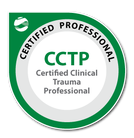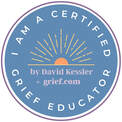|
“Trust is the glue of life. It's the most essential ingredient in effective communication. It's the foundational principle that holds all relationships.” --Stephen Covey
If you ask any couple, they will tell you that trust is foundational in the relationship. Violations of trust are the most common reason that couples seek help. It is devastating when a partner breaks the trust that has been established. It is not easy, but with work and effort trust can be rebuilt. I often use the analogy that as a couple, you are building a city together. The longer the couple has been trusting in the relationship the larger the city grows. If there is a small trust issue, it may just damage a building or two, but the rest of the city remains strong. When there is a major violation of trust it is like an earthquake hits and the entire city crumbles. All the forms and structures of the relationship that were once known are gone. The city is now just dust and debris. It becomes dangerous to navigate and feels foreign. If the couple tries to ignore the problem and move on without proper clean up, it is like building new structures on top of the rubble. It is not a firm foundation and it won’t be long before the new structures fall. It is only when couples make genuine repair attempts and work to gain trust again that the debris starts to be cleaned out. Reaching out to make a genuine apology while listening with the intent of understanding, is like the removal of a wheelbarrow of debris. It can’t all get cleaned up in one ‘I’m sorry.’ Clearing is arduous work. It takes time and a willingness to be vulnerable, but the work starts to clear enough solid ground to start rebuilding. Couples can start creating their new city while sections of debris remain. The beauty is that they get to choose how they would like to rebuild their city. In this new city, they can decide what was working from the old and incorporate it, while they can leave out what wasn’t working. When they continue to communicate with clarity, they begin to rebuild and remove debris. Eventually, a new relationship is created that may, or may not, look anything like their old relationship. I emphasize that this is a brand-new relationship and it must be treated with the respect and reverence of any new relationship. Violations of trust do not need to end a relationship. They can become an opportunity to create a new relationship which better meets the needs of everyone involved. It takes a willingness to do the demanding work of clean-up and rebuilding, but it can revitalize your city.
1 Comment
“Darkness cannot drive out darkness; only light can do that. Hate cannot drive out hate; only love can do that.” Martin Luther King, Jr.
The news stories of the past couple weeks have been difficult to watch. From the war of words with North Korea, to the violent protests in Charlottesville, to the terrorist attack in Barcelona, we have been reminded that change is needed if we as a species wish to survive and experience peace. We are at a critical point in history and these events are bringing major issues to the forefront. People are concerned and scared about what the future will hold. Now is the time to ask if the way we have been doing things is working. This is not about who is right and who is wrong. Those are judgements. This is about asking does it serve us to threaten nuclear war on a country smaller than the size of Mississippi? Does it work to respond to hate with hate? There is one thing in common with all people who hate. ISIS, Neo-Nazis, the KKK, Kim Jong-un and Donald Trump all share one quality. They are fearful. They are scared to lose something that they value. When we look at them as extremely scared individuals who are acting out in fear, it is easier to begin to have some compassion for them. Hating them will not change them, it will only lead to more hate. I believe that all people are good at their core. It is our innate human nature to be giving and caring and loving. When people hate, it is because they have forgotten who they are. They have been engulfed by their ego and taken over by fear. When we begin to become curious about what they are fearful about, we start to understand. On that level, healing begins as we are able to go under the rhetoric and address the real issues. It is no longer working for us to hate. We are all diverse individuals sharing one planet. When we begin to honor that diversity, and look for ways to show love and compassion to those who look and believe differently, the world will be at peace. Martin Luther King, Jr. left us with many words of wisdom. Here are two more quotes from him which are just as appropriate now as when he spoke them: “Have we not come to such an impasse in the modern world that we must love our enemies - or else? The chain reaction of evil - hate begetting hate, wars producing more wars - must be broken, or else we shall be plunged into the dark abyss of annihilation.” “We must develop and maintain the capacity to forgive. He who is devoid of the power to forgive is devoid of the power to love. There is some good in the worst of us and some evil in the best of us. When we discover this, we are less prone to hate our enemies.” Are we ready to change? “Forgiveness says you are given another chance to make a new beginning.” –Desmond Tutu
We are often told to ‘forgive and forget.’ I don’t believe these two words should ever go together. Forgiveness does not mean forgetting what happened. Whatever happened did happen and we do not have a magic eraser to clean it from our mind. We remember what we did or what someone did to us and forgetting the event simply, does not happen. The work of forgiveness is challenging. There are many layers to it. I often hear people say that they have forgiven themselves or someone else, but if there is still something about the situation that continues to bother us, the work is not complete. I once heard someone say that there were some people who were not safe to walk the streets of her mind. Whenever she thought of ‘that person’ or what they did she would attack them. I love that visual and whether it is someone we are rehashing an argument with or beating ourselves up for something we did, as soon as the thought occurs, our brains go into attack mode. Forgiveness is something we do to release the anger we are holding. This is for both self-forgiveness and the forgiveness of others. The Buddha compared holding onto anger, to holding a hot coal with the intent to throw it at someone. The problem is that while you are holding the hot coal you are the one who is getting burned. We need to drop the coal, because we are only hurting ourselves. Releasing the anger does not mean saying that what happened was okay. It does not mean that we condone whatever happened. What it does mean is that we can move forward. We have not yet developed the time machine, so none of us can go back to change the event. We can decide to release the anger over the event though and that is powerful. Choosing to forgive is to accept our own and other’s imperfections. It is to acknowledge that what was said or done was painful, but we don’t need to carry the pain indefinitely. It is a choice to say that we have suffered enough and we are ready to forgive. It is a personal choice that can have a profound effect. Who are you ready to forgive? “The weak can never forgive. Forgiveness is the attribute of the strong.”–Mahatma Gandhi
Whenever the topic of forgiveness comes up in sessions, most people immediately go to the question, ‘How do I forgive when I have been hurt so much?’ This, to me, is the wrong question to be asking. Instead I try to focus on why we would want to forgive. The Buddha has said, “Holding on to anger is like grasping a hot coal with the intent of throwing it at someone else; you are the one who gets burned.” I love this quote. I know there have been times when I have been angry at someone and then saw that person out having fun and laughing. It burned me up inside when I saw that they were happy and I was still angry and hurt. It was that hot coal that I was holding with the intent of throwing, but all the while I was the one in pain. When we begin to see how the anger and hurt we hold is not hurting the other person, but only causing pain in us, we begin to see the why of forgiveness. As I envision us as people we have an authentic self that is within, what religions term the soul. I usually point to the heart when I talk about this. When we have hurt, anger and raw pain that hasn’t been healed, it is like a blockage between our authentic self and the world. It is a part of us that is separated, cut off and isolated. When those blockages are small, they don’t interfere too much in our daily life, but when they become bigger the effects of the separation and isolation can be seen and felt. The underlying pain manifests in different ways in different people. Some withdrawal and they themselves become isolated with depression. Others become hypersensitive or over react to small disappointments. Others become angry or vengeful and lash out at others. Under it all is pain and the pain comes from the separation between who we authentically are and the version of life we are living. So, the why of forgiveness is to remove the block in us that stops us from living life fully and engaging with others in healthy ways. Forgiveness has nothing to do with the other person and it has absolutely nothing to do with forgetting. The fact that it happened will always be there, but through forgiveness work the reaction to the incident no longer has the power to keep us stuck. Once it is removed, our authentic self is once again able to connect with others and the world. Removing the block is the greatest gift we are able to give our self. “It’s one of the greatest gifts you can give yourself, to forgive. Forgive everybody.” –Maya Angelou
Forgiveness is a funny thing. We are told from the time we are little to say we are sorry as soon as we do something wrong. Those words ‘I’m sorry’ are supposed to be the magic wand to repair the damage that was done. As a parent I have often told my kids that the sarcastic ‘sorry’ that they gave me wasn’t good enough. I have caught myself yelling at them, “Say sorry like you mean it!” What does it mean to apologize like we mean it? We are taught that there are certain words that we are supposed to say when we have done something wrong. When we carefully speak these words we expect that the person hearing the words will accept our apology and we move on. Many times though we struggle to be able to truly forgive, even when someone says all the right words. I have come to believe that apologies and forgiveness have nothing to do with the words that are spoken. It has everything to do with the emotion and connection that we have when we are acknowledging our own pain. The process of forgiveness is an act of courage. It is risking vulnerability when we admit that we have fallen short and hurt someone. Being on the receiving end is just as difficult. We are often hurt and angry, so instead of listening to the person making the apology, we are stuck in the anger and that part of us can never forgive. I was working with a client this week and he began talking about some of the abuse he endured as child. When I asked him how much he has been able to heal and forgive over the years he became agitated and stated that he would never be able to forgive his mother’s former boyfriend for what he did over the years. He said, “I will never forget it, so I will never forgive him.” We seem to have a mistaken notion that forgiving and forgetting are somehow synonymous. I discussed with him how the common use of the term forgiveness does imply that once those magical words are spoken the issue is over and everyone moves on like it never happened. This is not what I believe forgiveness is at all. Through our sessions I talked to him about how all of the abuse he endured is like a raw open wound and although he no longer has any contact with his former abuser, the wound is still raw. Now in his life anytime anyone, even his current wife or children, get close to anything that reminds him of the past trauma he reacts in extreme anger. It is at the point where it is causing issues in all of his current relationships. An act of forgiveness, to me, is the process of healing the wound in us. It has nothing to do with the other person. When we have an open wound it is like there is a block in us that we are unable to move beyond. My client was not able to fully connect with his family because he was getting triggered by his past pain whenever something touched upon his wound. I feel it is important to recognize that pain is a block which prevents connection with others and forgiveness is the only way to remove the block. This is a big topic and I will continue this discussion next week. One of the biggest blocks to flow is difficulty in coming to terms and acceptance of our past. We have all done things we are not proud of. We all have moments when we realize we lost our temper and lashed out in anger, or did things that were hurtful to someone else. While other people are often quick to point out that we screwed up, the fact is most times we know and our internal voice is already giving ourselves a severe tongue lashing. That voice in our head is our most outspoken critic. It will remind us at every chance it gets that we really don’t know as much as we think we do or that we really are the worthless person someone had told us we were. It is often hard to move beyond that critical voice, but that is exactly what keeps us stuck. Take a moment to truly think about how compassionate you are to yourself. Let’s say you accidentally knock a cup of coffee over and it spills on some important papers on your desk at work, what does your internal voice sound like? Is it screaming and yelling at you or is it telling you that it is okay and you will be able to fix it? Put it on a scale of 0- extremely critical to 10- completely compassionate. Now take a moment and imagine that someone you admire at work (or a good friend, significant other or child) just spilled something. While the initial response may be anger, when you see their reaction and they begin to apologize chances are you begin to show them compassion. You let them know that it was an accident and that they didn’t intend to do it. It is often much easier for us to show compassion to someone else than it is to show compassion to ourselves. One of the exercises that I go through with clients is to ask them to imagine themselves lying in bed crying or upset with themselves. I ask them to visualize themselves walking up behind this image of themselves lying in bed and ask them to comfort themselves, just like they would comfort a child. I have found that it is extremely difficult for some of the clients to do this. There is so much self-hatred built up that to even begin imagining any self-compassion brings up a great deal of emotion. I have encouraged the clients to begin with brief visualizations of this self-compassion exercise daily, trying to stay with it for several seconds only at first, but asking them to gradually build up to staying with it for a full minute and up to five minutes daily. There is a space between the life we are currently living and the life of our dreams. Within that space there is a lot of muck and difficult things to go through. For many people is it easier to stay bound by our circumstances then it is to go through the muck in order to get to the life of our dreams. Beginning with self-compassion gives us the strength to get through the muck. It is one of the most important keys to getting unstuck.
|
Archives
April 2020
Categories
All
|
 RSS Feed
RSS Feed




